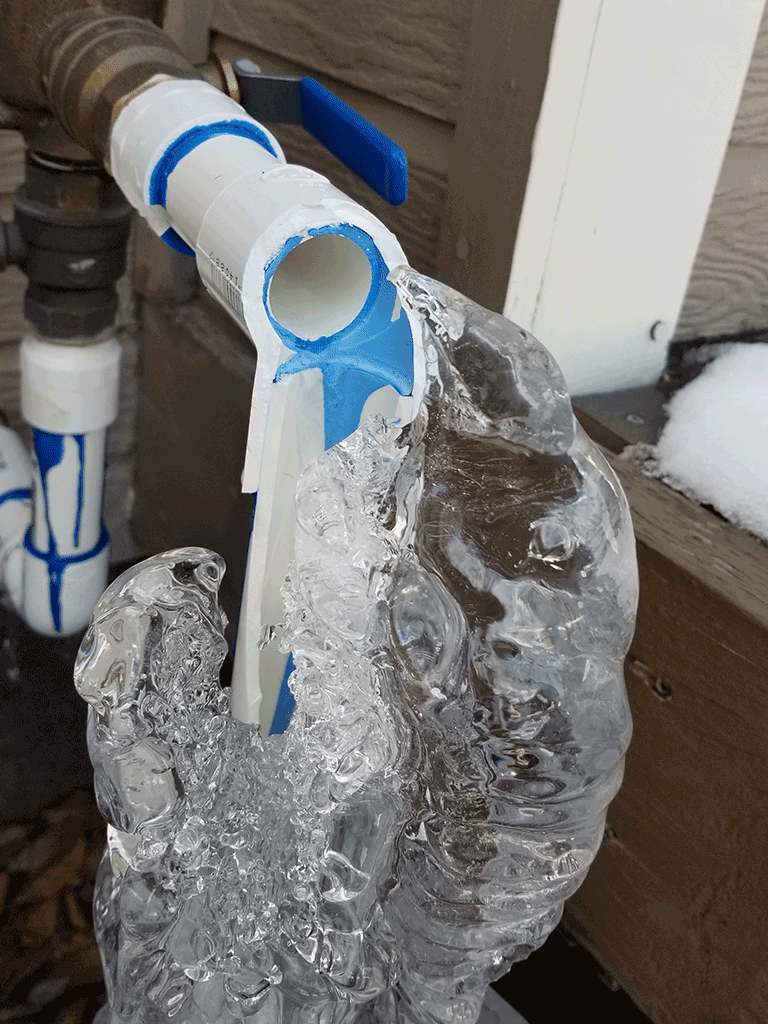Tips to Prevent Frozen Plumbing in Cold Weather: Professional Advice
Tips to Prevent Frozen Plumbing in Cold Weather: Professional Advice
Blog Article
Just about everyone has got their own idea in relation to Prevent Frozen Pipes .

Cold weather can wreak havoc on your plumbing, especially by freezing pipes. Right here's how to stop it from occurring and what to do if it does.
Intro
As temperatures decline, the danger of frozen pipes rises, potentially leading to expensive fixings and water damage. Recognizing how to avoid icy pipes is crucial for property owners in cool climates.
Prevention Tips
Protecting at risk pipelines
Wrap pipes in insulation sleeves or utilize warmth tape to safeguard them from freezing temperatures. Concentrate on pipelines in unheated or external locations of the home.
Home heating strategies
Maintain indoor rooms properly heated, especially locations with pipes. Open closet doors to permit cozy air to circulate around pipes under sinks.
Exactly how to determine frozen pipes
Search for decreased water flow from taps, uncommon odors or noises from pipelines, and visible frost on exposed pipelines.
Long-Term Solutions
Structural changes
Think about rerouting pipes far from outside walls or unheated locations. Add extra insulation to attic rooms, basements, and crawl spaces.
Updating insulation
Invest in high-quality insulation for pipes, attic rooms, and walls. Appropriate insulation helps preserve consistent temperature levels and decreases the threat of frozen pipelines.
Protecting Exterior Plumbing
Yard hoses and outside taps
Disconnect and drain yard tubes before wintertime. Mount frost-proof spigots or cover outside taps with insulated caps.
Comprehending Icy Pipelines
What creates pipelines to freeze?
Pipelines ice up when exposed to temperature levels listed below 32 ° F (0 ° C) for expanded periods. As water inside the pipes freezes, it broadens, taxing the pipeline wall surfaces and possibly triggering them to rupture.
Dangers and problems
Icy pipes can bring about water supply interruptions, home damage, and costly repair work. Ruptured pipes can flooding homes and trigger extensive structural damage.
Signs of Frozen Pipes
Recognizing icy pipes early can avoid them from rupturing.
What to Do If Your Pipes Freeze
Immediate activities to take
If you presume frozen pipelines, keep taps available to ease pressure as the ice thaws. Use a hairdryer or towels taken in warm water to thaw pipes gradually.
Conclusion
Stopping frozen pipelines requires aggressive steps and fast reactions. By recognizing the causes, indications, and safety nets, house owners can protect their plumbing throughout winter.
Helpful Tips to Prevent Frozen Pipes this Winter
UNDERSTANDING THE BASICS: WHY PIPES FREEZE AND WHY IT’S A PROBLEM
Water freezing inside pipes is common during the winter months, but understanding why pipes freeze, and the potential problems it can cause is crucial in preventing such incidents. This section will delve into the basics of why pipes freeze and the associated problems that may arise.
THE SCIENCE BEHIND FROZEN PIPES
When water reaches freezing temperatures, it undergoes a physical transformation and solidifies into ice. This expansion of water as it freezes is the primary reason pipes can burst. As the water inside the pipe freezes, it expands, creating immense pressure on the walls. If the pressure becomes too great, the pipe can crack or rupture, leading to leaks and water damage.
FACTORS THAT CONTRIBUTE TO PIPE FREEZING
Low Temperatures: Extremely cold weather, especially below freezing, increases the risk of pipes freezing. Uninsulated or Poorly Insulated Pipes: Pipes located in unheated areas, such as basements, crawl spaces, or attics, are more prone to freezing. Insufficient insulation or lack of insulation altogether exacerbates the problem. Exterior Wall Exposure: Pipes running along exterior walls are susceptible to freezing as they encounter colder temperatures outside. Lack of Heating or Temperature Regulation: Inadequate heating or inconsistent temperature control in your home can contribute to frozen pipes. PROBLEMS CAUSED BY FROZEN PIPES
- Pipe Bursting: As mentioned earlier, the expansion of water as it freezes can cause pipes to burst, resulting in significant water damage.
- Water Damage: When pipes burst, it can lead to flooding and water damage to your property, including walls, ceilings, flooring, and personal belongings.
- Structural Damage: Prolonged exposure to water from burst pipes can compromise the structural integrity of your home, leading to costly repairs.
- Mold and Mildew Growth: Excess moisture from water damage can create a favorable environment for mold and mildew growth, posing health risks to occupants.
- Disrupted Water Supply: Frozen pipes can also result in a complete or partial loss of water supply until the issue is resolved.
WHY CERTAIN PIPES ARE MORE PRONE TO FREEZING
- Location: Pipes located in unheated or poorly insulated areas, such as basements, crawl spaces, attics, or exterior walls, are at higher risk of freezing.
- Exterior Pipes: Outdoor pipes, such as those used for irrigation or exposed plumbing, are particularly vulnerable to freezing as they are directly exposed to the elements.
- Supply Lines: Pipes that carry water from the main water supply into your home, including the main water line, are critical to protect as freezing in these lines can affect your entire plumbing system.
- Underground Pipes: Pipes buried underground, such as those connected to sprinkler systems or outdoor faucets, can be susceptible to freezing if not properly insulated.
https://busybusy.com/blog/helpful-tips-to-prevent-frozen-pipes-this-winter/

I came across that piece of writing on Winter Plumbing Precautions: Preventing Frozen Pipes while perusing the internet. Sharing is good. You just don't know, you could be helping someone out. I am grateful for your time. Don't hesitate to pay a visit to our website back soon.
Or Book Technician Here Report this page